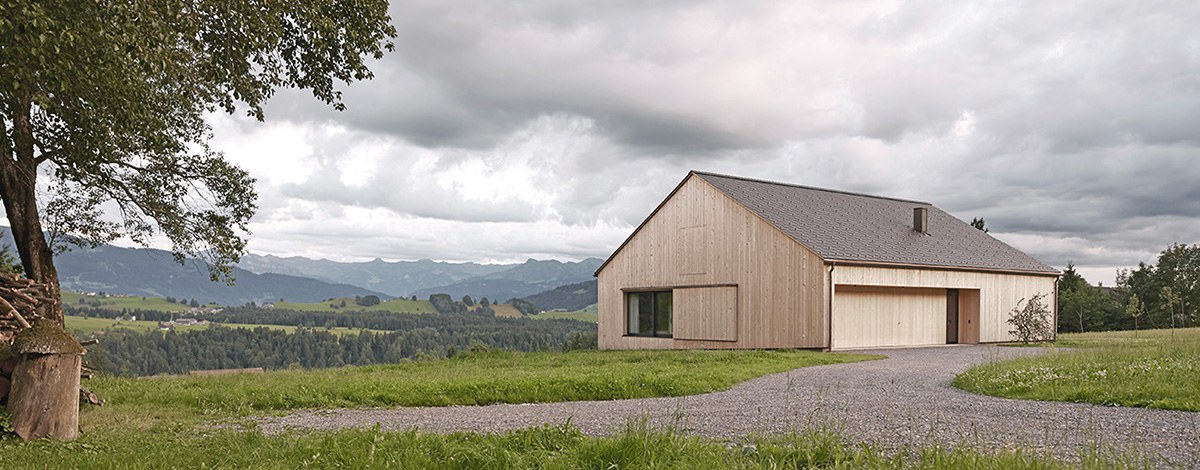The best one-family house in German-speaking regions is situated in the Bregenzerwald Forest in Vorarlberg. This was the conclusion of the jury which had the difficult task of choosing between 228 projects submitted from Germany, Italy, Luxembourg, Austria, Switzerland and the Netherlands. In all six special mentions were awarded and a single prizewinner was chosen.
Simple, regional and restrained
The first prize, which has a value of 10,000 euros, was won by Bernardo Bader, Architect, from Dornbirn in Austria, with his project ‘Behauste Scheune’ [‘Inhabited Barn’]. The simplicity and restraint of the project, together with the use of native materials, were what most impressed the jury. With an area of 150 square metres, the building consists of relatively simple elements. The façade of silver fir derives from the woodlands belonging to the project developer, and is in keeping with the countryside; while the large window frontage suggest rectilinear modernism. In this way Bernardo Bader’s architecture office has succeeded in retaining the structure of the surroundings: ‘a village with barns, the country as garden,’ to quote the jury’s verdict. The jury was delighted with this self-evident building which has nonetheless been conceived in masterly fashion down to the last detail, and which also recalls the demolished barn which previously stood for decades on the same spot.
A successful year for the Institute of Architecture and Planning
But the prize for the ‘House of the Year 2015’ was not the only one to be won by Bernardo Bader this year. Already in July the architect, who has been lecturing at the University of Liechtenstein since 2008, had won a prize and a distinction under the auspices of the Vorarlberg Timber Construction Prize for the pastor’s house in Krumbach and other projects; and in August he went on to win a competition for a kindergarten in Heilbronn, Germany.
The holder of the Chair in Sustainable Building at the University of Liechtenstein, Dietrich Schwarz, also attracted attention with an ‘exemplary residential development’ in Mellingen an der Reuss. West of the small historic centre of Mellingen, Schwarz has set up a residential complex which gives the impression of ‘urban elegance and snug seclusion’, as the Neue Zürcher Zeitung [New Journal of Zurich] emphasised.

